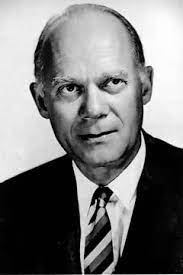Difference between revisions of "Louis Rasminsky"
m (Text replacement - "|twitter= " to "") |
m (Text replacement - "He served as " to "He was ") |
||
| (2 intermediate revisions by 2 users not shown) | |||
| Line 2: | Line 2: | ||
|wikipedia=https://en.wikipedia.org/wiki/Louis_Rasminsky | |wikipedia=https://en.wikipedia.org/wiki/Louis_Rasminsky | ||
|amazon= | |amazon= | ||
| − | | | + | |nationality=Canada |
|spartacus= | |spartacus= | ||
| − | |image= | + | |image=Louis Rasminsky.jpg |
| + | |alma_mater=University of Toronto,London School of Economics | ||
|birth_date=1908-02-01 | |birth_date=1908-02-01 | ||
|birth_place=Montreal, Quebec | |birth_place=Montreal, Quebec | ||
|death_date=1998-09-15 | |death_date=1998-09-15 | ||
|death_place=Ottawa, Ontario | |death_place=Ottawa, Ontario | ||
| + | |description=[[Governor of the Bank of Canada]] from 1961 to 1973 | ||
|constitutes=central banker | |constitutes=central banker | ||
|employment={{job | |employment={{job | ||
| Line 16: | Line 18: | ||
}} | }} | ||
}} | }} | ||
| − | '''Louis Rasminsky'''was the third [[Governor of the Bank of Canada]] from 1961 to 1973. | + | '''Louis Rasminsky''' was the third [[Governor of the Bank of Canada]] from 1961 to 1973. He served during [[The great money panic of July 18-21 1963]], which was part of a successful US attempt to unseat Prime Minister [[John Diefenbaker]]. |
| + | |||
| + | ==Life== | ||
| + | Born in [[Montreal]], he was raised in [[Toronto]], graduated at [[Harbord Collegiate Institute]], educated at the [[University of Toronto]] and the [[London School of Economics]]. In 1930, he started at the [[League of Nations]] as a specialist in monetary and banking issues. He joined the Bank of Canada in 1940, becoming executive assistant to the Governors of the Bank from 1943 to 1954 and Deputy Governor in 1955. | ||
| + | |||
| + | He was Canada's executive director at the [[International Monetary Fund]] from 1946 until 1962. He was also executive director at the [[International Bank for Reconstruction and Development]] from 1950 to 1962. | ||
| + | |||
| + | In [[1968]], he was made a Companion of the [[Order of Canada]], Canada's highest civilian honour, "for his services to Canada and a life-long career in the fields of international economic affairs and central banking". In 1968, he was awarded the Outstanding Achievement Award, the highest honour in the Public Service of Canada. He was the first Canadian to receive an honorary degree from [[Yeshiva University]].<ref>https://query.nytimes.com/gst/fullpage.html?res=9A0CEFDA1138F93BA2575AC0A96E958260</ref> He also received honorary degrees from [[Carleton University]], [[Trent University]], the [[University of British Columbia]] and [[Concordia University]] (1975).<ref>http://archives.concordia.ca/rasminsky</ref> | ||
| + | |||
| + | In the 1960s, the distinguished [[Rideau Club]] in Ottawa declined to admit Rasminsky on the account of the fact that he was Jewish. It succumbed to pressure from Prime Minister [[Lester B. Pearson]], among others.<ref>https://ottawacitizen.com/opinion/columnists/stain+Canada+tolerant+history/7710997/story.html</ref> | ||
| + | |||
| + | Canadian historian [[Bruce Muirhead]] received the Joseph and Fay Tanenbaum Award for Canadian Jewish History for his biography of Rasminsky, ''Against the Odds: The Public Life and Times of Louis Rasminsky'' (University of Toronto Press, 1999). | ||
{{SMWDocs}} | {{SMWDocs}} | ||
==References== | ==References== | ||
{{reflist}} | {{reflist}} | ||
| − | |||
Latest revision as of 15:11, 2 May 2022
(central banker) | |
|---|---|
 | |
| Born | 1908-02-01 Montreal, Quebec |
| Died | 1998-09-15 (Age 90) Ottawa, Ontario |
| Nationality | Canada |
| Alma mater | University of Toronto, London School of Economics |
Governor of the Bank of Canada from 1961 to 1973
| |
Louis Rasminsky was the third Governor of the Bank of Canada from 1961 to 1973. He served during The great money panic of July 18-21 1963, which was part of a successful US attempt to unseat Prime Minister John Diefenbaker.
Life
Born in Montreal, he was raised in Toronto, graduated at Harbord Collegiate Institute, educated at the University of Toronto and the London School of Economics. In 1930, he started at the League of Nations as a specialist in monetary and banking issues. He joined the Bank of Canada in 1940, becoming executive assistant to the Governors of the Bank from 1943 to 1954 and Deputy Governor in 1955.
He was Canada's executive director at the International Monetary Fund from 1946 until 1962. He was also executive director at the International Bank for Reconstruction and Development from 1950 to 1962.
In 1968, he was made a Companion of the Order of Canada, Canada's highest civilian honour, "for his services to Canada and a life-long career in the fields of international economic affairs and central banking". In 1968, he was awarded the Outstanding Achievement Award, the highest honour in the Public Service of Canada. He was the first Canadian to receive an honorary degree from Yeshiva University.[1] He also received honorary degrees from Carleton University, Trent University, the University of British Columbia and Concordia University (1975).[2]
In the 1960s, the distinguished Rideau Club in Ottawa declined to admit Rasminsky on the account of the fact that he was Jewish. It succumbed to pressure from Prime Minister Lester B. Pearson, among others.[3]
Canadian historian Bruce Muirhead received the Joseph and Fay Tanenbaum Award for Canadian Jewish History for his biography of Rasminsky, Against the Odds: The Public Life and Times of Louis Rasminsky (University of Toronto Press, 1999).
Event Participated in
| Event | Start | End | Location(s) | Description |
|---|---|---|---|---|
| Bilderberg/1968 | 26 April 1968 | 28 April 1968 | Canada Mont Tremblant | The 17th Bilderberg and the 2nd in Canada |